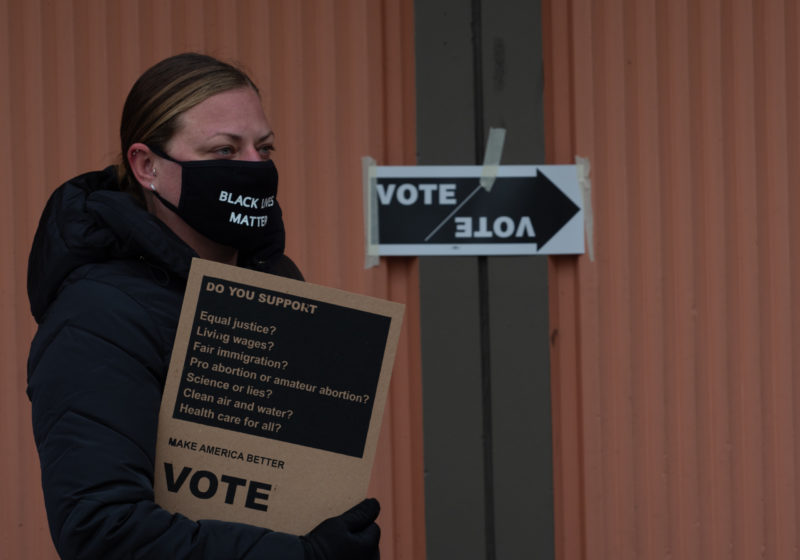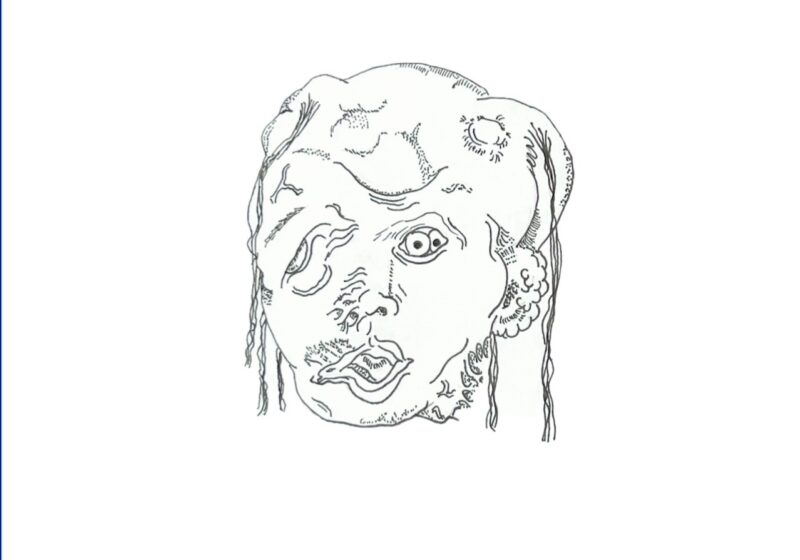In sixth grade, I remember learning the Romans would publicly shame people for not voting. The times have changed, so I can’t force non-voters to walk around the city in a red tabard and subject them to public ridicule. However, I can make non-voters feel pretty bad about their inaction, so here are just a few reasons you should vote on Nov. 3.
It comes from a place of privilege to believe simply not voting is better than endorsing the less racist, less sexist, less homophobic, etc. option right now. In doing so, you’re giving up another opportunity to say “no” to discrimination. It’s essential to improving our access to human rights. To not vote is to choose latency over positive action.
To choose not to vote is to show a lack of concern for immigrants who can’t vote but must still abide by the laws made by Congress. Even if you don’t personally feel any need for political change, I’d encourage you to consider how your international peers might wish to vote in this election and use your vote to help their voices be heard.
Upon arriving at UR in 2018, I felt an overwhelming sense of responsibility to my international friends during that election year. At a school with such a large international student population, I was reminded that the laws enacted regarding immigration and trade might not affect me, but they most certainly affect my friends. In fact, this year, some of those laws made it more difficult for my friends to simply access their education. Choosing not to vote in this political climate is choosing to ignore the needs of those around you.
On another note, once you’re 18, you usually have to pay taxes. As a person who has paid taxes since I was 16, I’d like to know that my tax dollars are going toward causes I care about, like public education or Planned Parenthood. If that means I need to vote for a representative willing to push my money toward my favorite government-provided services, then that means I’m going to be at the ballot box on Nov. 3.
Don’t forget, one of the most underrepresented groups in voting is children. Kids are directly impacted by laws despite having no say in their creation. It’s one of the primary reasons why action against climate change needs to be taken at the federal level. But this won’t be done unless we elect a candidate willing to make that change.
There are other laws regarding public education, access to charter schools, and the foster care system which are processed at both the federal and local level. It’s as simple as ticking a box to establish your role in improving the lives of your brothers and sisters, or even your own future children.
In this election cycle, the results could come down to the popular vote. If the vote is extremely close (which it very well could be), your one, teeny-weeny, little vote is going to matter.
Plus, it’s cool to vote. I really hope that you know you’re doing something productive with your time. No matter the outcome, your motivation to make your voice heard is admirable.
And while we’re feeding our egos, you get to say you took part in one of the most historically significant elections in American history. Put that in your grad school applications! (Not really, but it’s still pretty cool.)
We all know the current political system isn’t changing anytime soon. To not vote is to give up what say — however small — you do have in our government. Voting is the most direct and effective way you can make change. Not bothering to vote is disregarding this plain fact.
Obviously, this election cycle is a bit different from elections prior. The combination of foreign interference, politicians threatening access to basic human rights, and voter suppression has made for unprecedented circumstances in unprecedented times. However, these circumstances have allowed for this election to become the most accessible of all time. Ballots can be submitted via mail, early voting, absentee ballot, and in-person on Nov. 3.
This isn’t ancient Rome, so I won’t publicly shame you. But please, please, please, please, please, pretty please with a cherry on top vote on Nov. 3.





